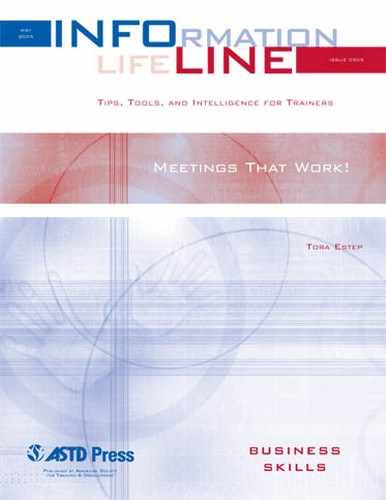Book Description
Meetings are a precious resource: an expensive waste of peoples time if run poorly and amazingly valuable and productive if run well. Yet many people and organizations hold meeting after meeting without knowing how to do so effectively or even what they want to accomplish. Harnessing a groups creativity and energy and directing it toward solving problems, generating new ideas, and moving big ideas forward requires skills and processes. This Infoline offers a simple, three-step process that will enable any meeting leader to stop wasting time and make meetings work. As in so many other areas, preparation is the first critical step toward meeting success. Preparation includes determining if you really need to meet, identifying the people who need to be there, preparing an agenda, and more. The second step covers the meeting process itself from moments before the meeting to the wrap-up. Youll learn how to run meeting activities, communicate effectively, keep the meeting on track, and use conflict productively. The finaloften overlookedstep is the follow-up, which includes distributing notes, holding up meeting commitments, and planning to make improvements based on meeting evaluations. Turn your dull-as-dishwater, unproductive meetings into exciting opportunities to make big things happen!
